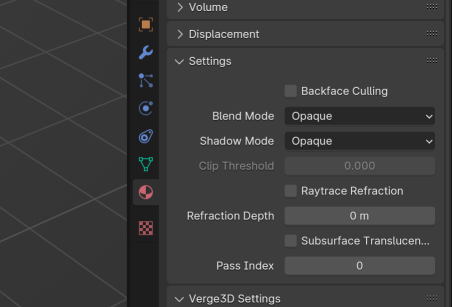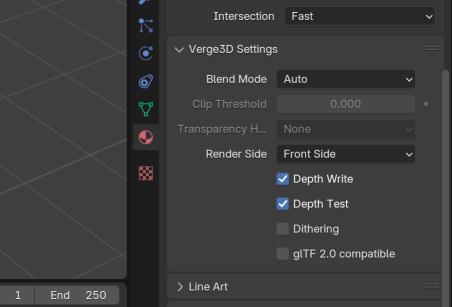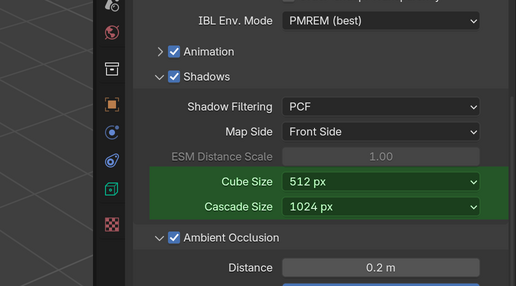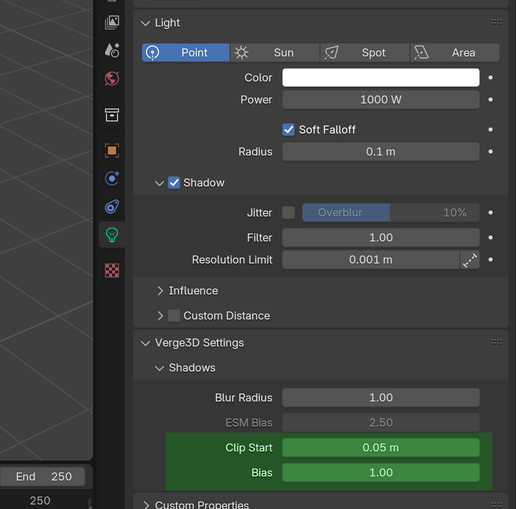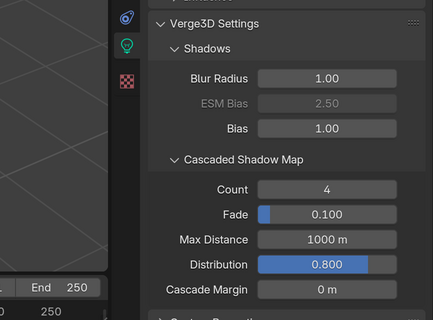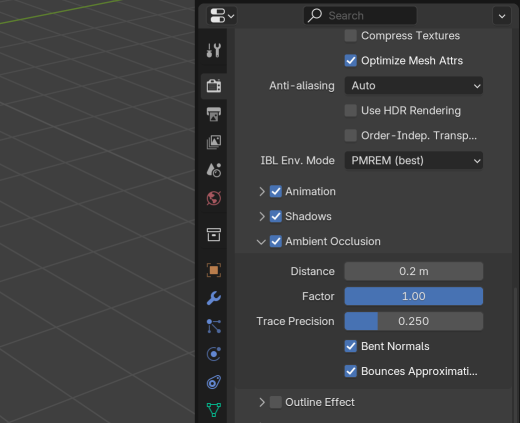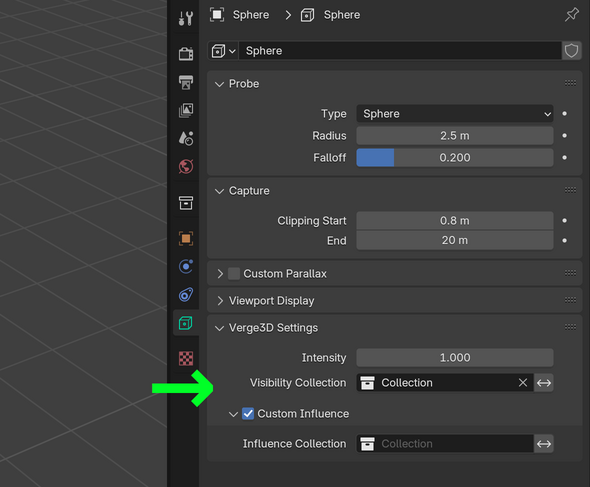Blender 4.2 migration guide
Blender 4.2 is a kinda significant update as it includes the new version of the Eevee render (called Eevee-Next internally).
This new version relies heavily on modern GPUs and raytracing algorithms for viewport rendering, hence it's not quite compatible with Verge3D. To overcome this, we implemented several changes which you should be aware of.
Transparency
Transparency settings from the older Blenders looked like these:
Most of them removed in Blender 4.2, some that remained are mostly useless now. To fix this, we've implemented several custom settings for transparency (on the material panel):
The new setting "Transparency Hacks" might be really useful to combat various transparency artifacts.
Shadows
There is no way to configure size (in pixels) of shadow cascades in Blender 4.2, but we've added these settings back:
Same story is with "Clip Start" and "Bias" settings (assigned for light sources):
As well as for cascaded shadows:
Ambient Occlusion
Ambient occlusion settings have been removed in Blender 4.2, we've recreated them as custom Verge3D settings:
Light Probes
Some settings for spherical and planar light probes have been removed in Blender 4.2, but you can find the missing ones below, on the Verge3D panel:
WTF, you must support Eevee-Next in Verge3D properly!
Unfortunately this is not quite possible due to the following reasons:
- There is no hardware-accelerated raytracing APIs available in the browsers (at least at the moment)
- Raytracing is really slow and won't be practical for web-based interactives (possibly for decades).
In general, the only things we can do now, is to approximate Verge3D rendering so that it is more or less consistent with Blender viewport.
